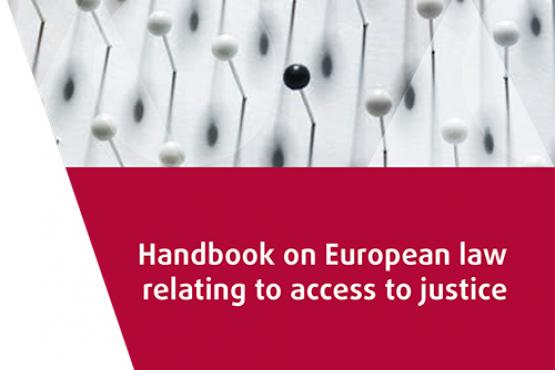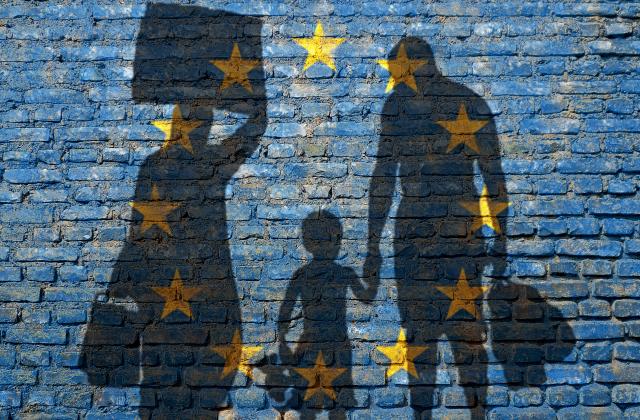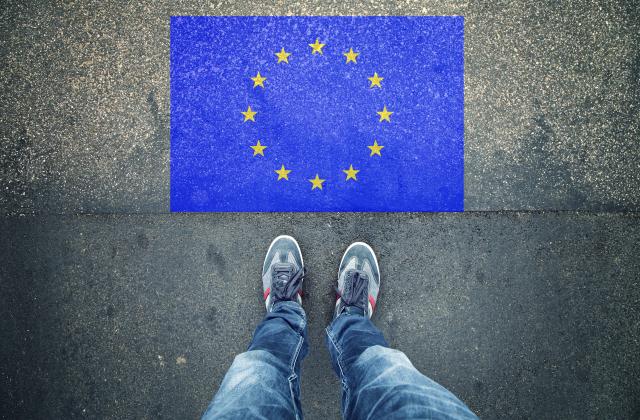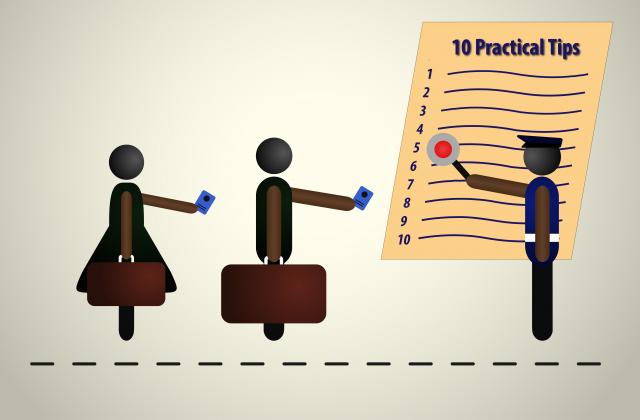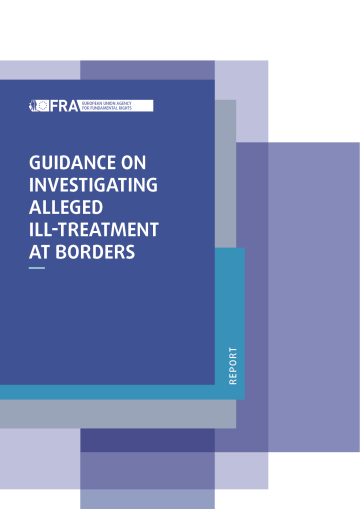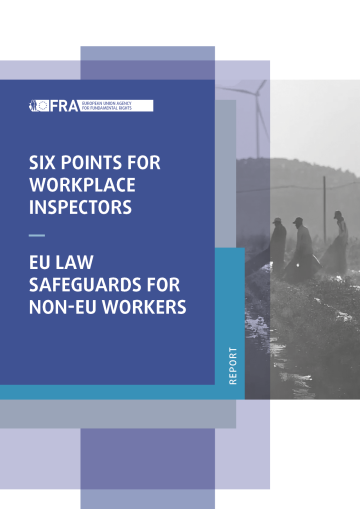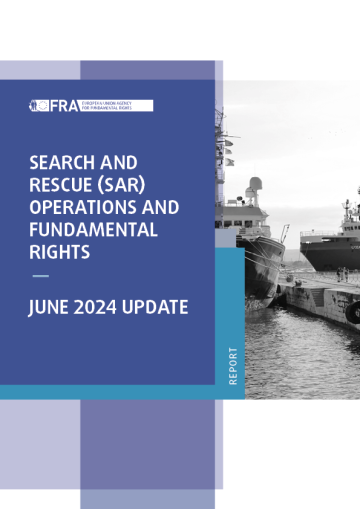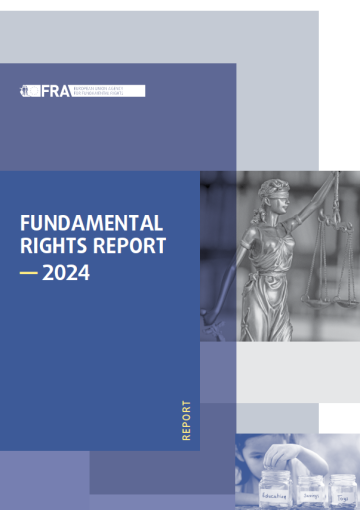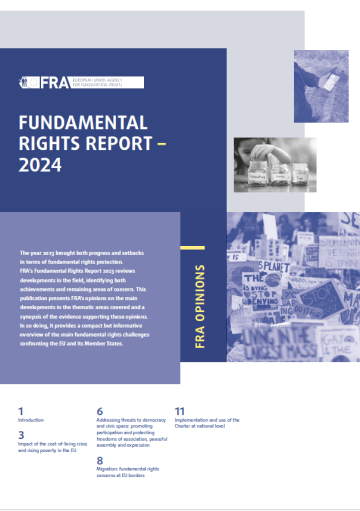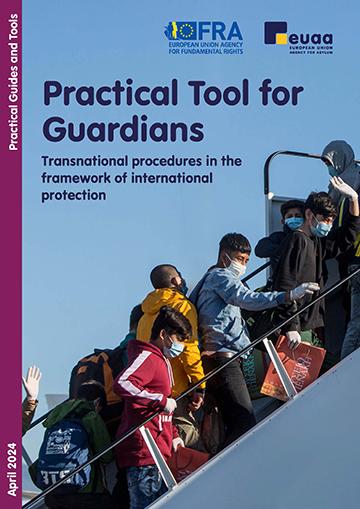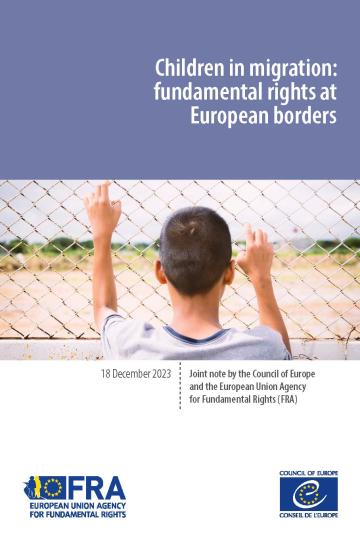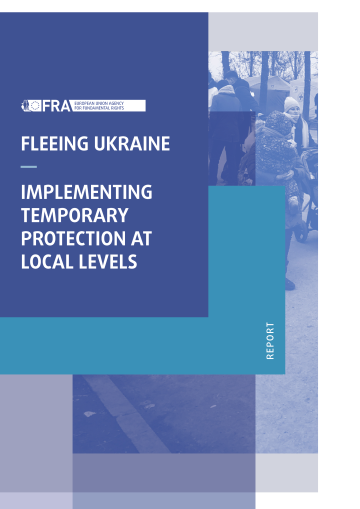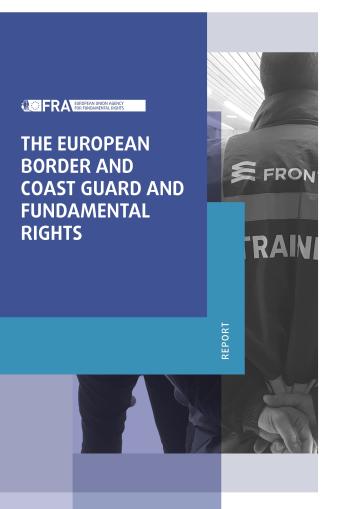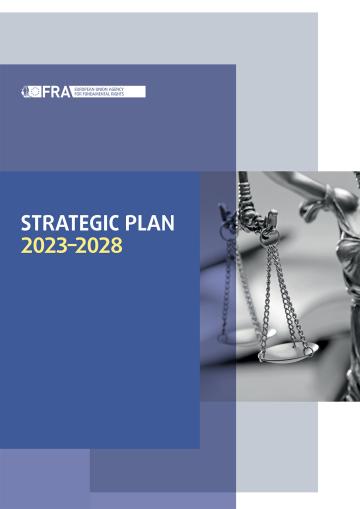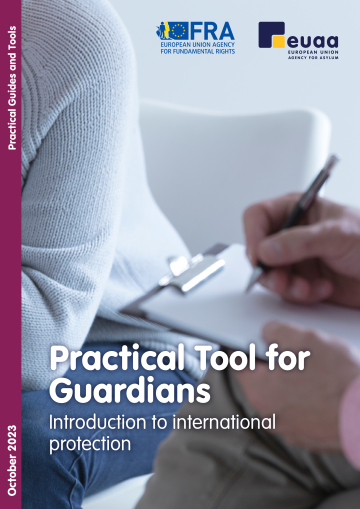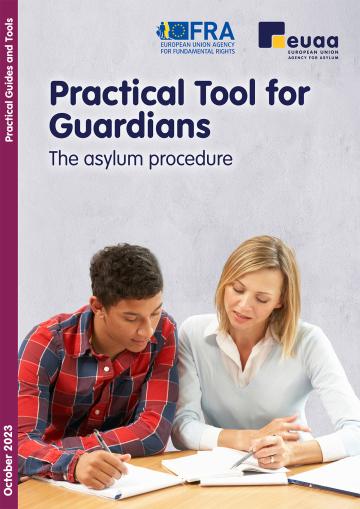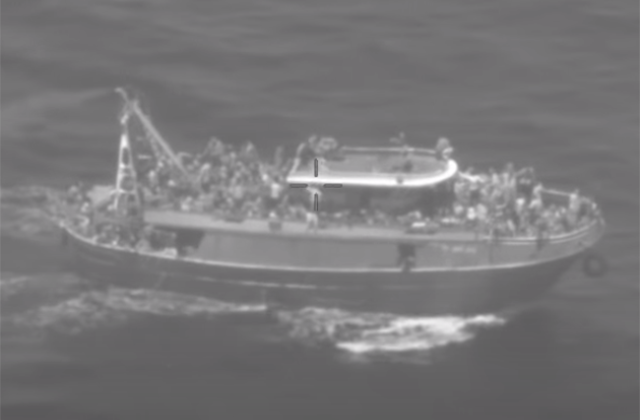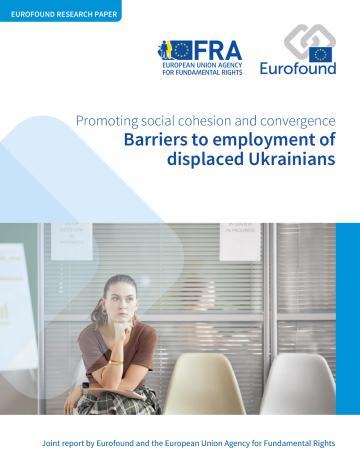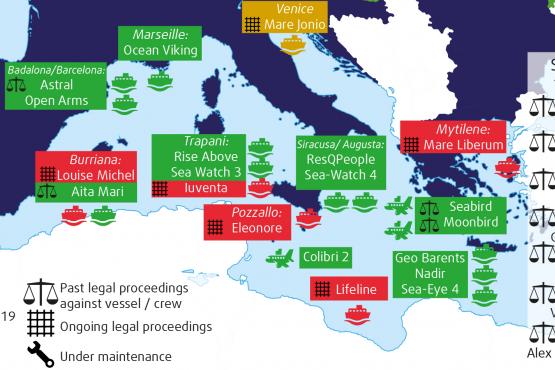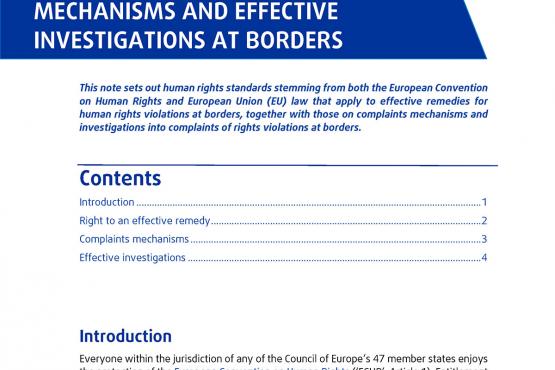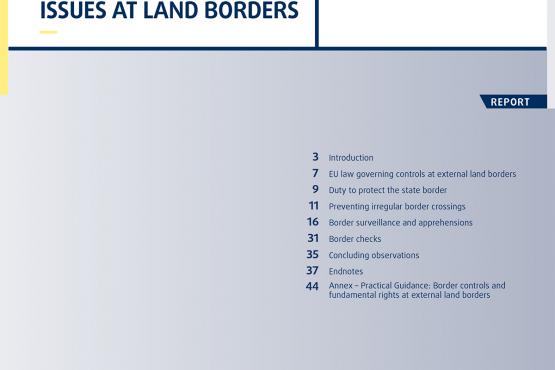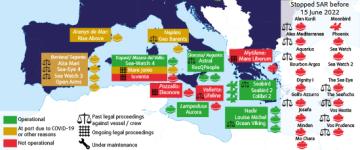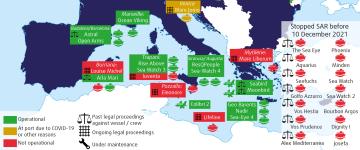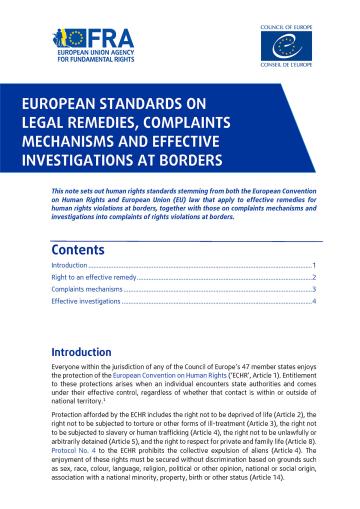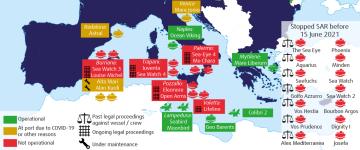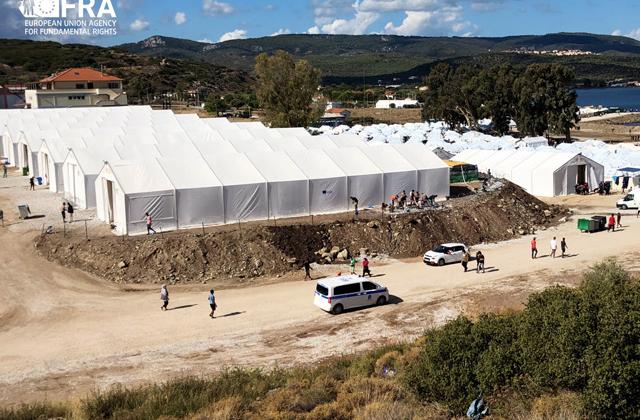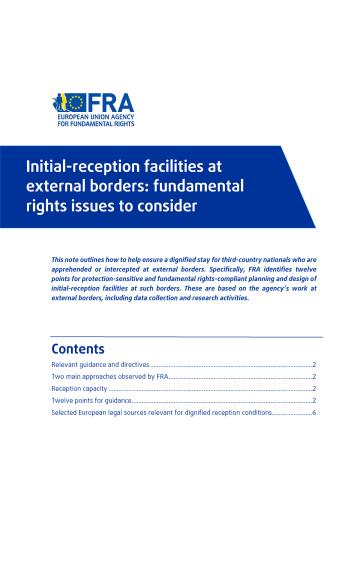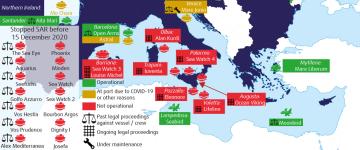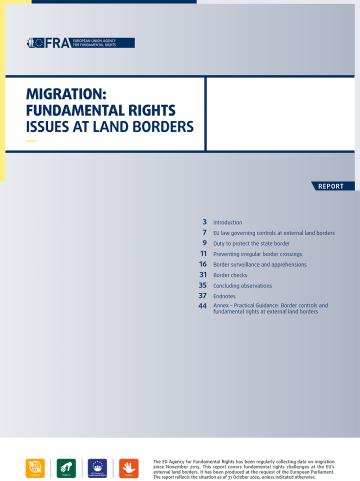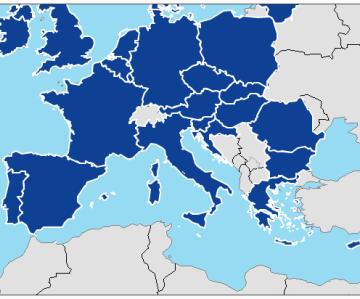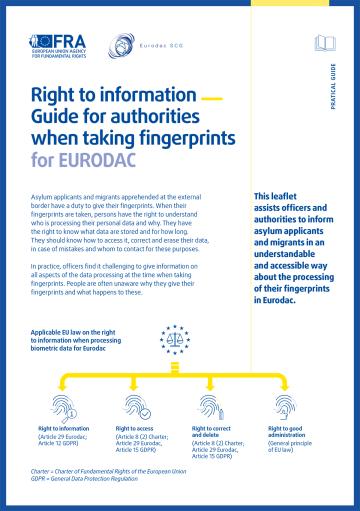Nationale Überwachungsmechanismen im Rahmen des Migrations- und Asylpakets der EU: Leitfaden für die EU-Mitgliedstaaten
Date of article: 04/09/2024
Daily News of: 25/09/2024
Country:  EUROPE
EUROPE
Author:
Article language: de
Deutsch
Press release
0
Secondary theme
Asyl, Migration und Grenzen
Highlights
- Report / Paper / Summary18November2021This report examines the EU’s main criminal law instrument in the field of counter-terrorism, Directive (EU) 2017/541. Specifically, it considers how the directive engages issues of fundamental rights, affecting individuals, groups and society as a whole.
- Report / Paper / Summary11Oktober2021This report proposes a framework for becoming, and functioning as, a ‘human rights city’ in the EU. It includes ‘foundations’, ‘structures’ and ‘tools’ for mayors, local administrations and grassroots organisations to reinforce fundamental rights locally. It is based on existing good practice and expert input by representatives of human rights cities in the EU, academic experts, international organisations and city networks.
- Handbook / Guide / Manual22Juni2016Der Zugang zur Justiz ist ein bedeutendes Element der Rechtsstaatlichkeit. Einzelne erhalten so die
Möglichkeit, sich gegen eine Verletzung ihrer Rechte zu schützen, im Falle unerlaubter Handlungen
Rechtsbehelfe geltend zu machen, die Exekutive zur Verantwortung zu ziehen und sich selbst in
Strafsachen zu verteidigen. Dieses Handbuch fasst die zentralen Grundsätze des europäischen
Rechts im Bereich des Zugangs zur Justiz zusammen. - SeiteThe Criminal Detention Database 2015-2022 combines in one place information on detention conditions in all 27 EU Member States as well as the United Kingdom.
Highlights
- Handbook / Guide / Manual17Dezember2020Die Europäische Menschenrechtskonvention (EMRK) und das Recht der Europäischen Union
bieten einen zunehmend bedeutenden Rahmen für den Schutz der Rechte von Ausländern.
Das Unionsrecht zu Asyl, Grenzen und Einwanderung entwickelt sich in hoher Geschwindigkeit
weiter. Der Umfang der Rechtsprechung des Europäischen Gerichtshofs für Menschenrechte,
insbesondere zu den Artikeln 3, 5, 8 und 13 EMRK, ist beträchtlich. Der Gerichtshof
der Europäischen Union wird immer häufiger aufgefordert, sich zur Auslegung der diesbezüglichen
Bestimmungen des EU-Rechts zu äußern. Die dritte Ausgabe dieses Handbuchs
wurde im Juli 2020 fertiggestellt. Es stellt das Unionsrecht sowie die Rechtsprechung der
beiden europäischen Gerichtshöfe auf verständliche Art und Weise vor. - Report / Paper / Summary27März2020Council of Europe (CoE) and European Union (EU) Member States have an undeniable sovereign right to control the entry of non-nationals into their territory. While exercising border control, states have a duty to protect the fundamental rights of all people under their jurisdiction, regardless of their nationality and/or legal status. Under EU law, this includes providing access to asylum procedures.
- Seite‘Hotspots’ are facilities set up at the EU’s external border in Greece and Italy for the initial reception, identification and registration of asylum seekers and other migrants coming to the EU by sea. They also serve to channel newly-arrived people into international protection, return or other procedures.
- Handbook / Guide / Manual18Februar2013Based on its findings and research FRA provides practical guidance to support the implementation of fundamental rights in the EU Member States. This series contains practical guidance on: Initial-reception facilities at external borders; Apprehension of migrants in an irregular situation; Guidance on how to reduce the risk of refoulement in external border management when working in or together with third countries; Fundamental rights implications of the obligation to provide fingerprints for Eurodac; Twelve operational fundamental rights considerations for law enforcement when processing Passenger Name Record (PNR) data and Border controls and fundamental rights at external land borders.
Produkte
Multimedia
News
Events
Grenzen und Informationssysteme
Highlights
- Report / Paper / Summary18November2021This report examines the EU’s main criminal law instrument in the field of counter-terrorism, Directive (EU) 2017/541. Specifically, it considers how the directive engages issues of fundamental rights, affecting individuals, groups and society as a whole.
- Report / Paper / Summary11Oktober2021This report proposes a framework for becoming, and functioning as, a ‘human rights city’ in the EU. It includes ‘foundations’, ‘structures’ and ‘tools’ for mayors, local administrations and grassroots organisations to reinforce fundamental rights locally. It is based on existing good practice and expert input by representatives of human rights cities in the EU, academic experts, international organisations and city networks.
- Handbook / Guide / Manual22Juni2016Der Zugang zur Justiz ist ein bedeutendes Element der Rechtsstaatlichkeit. Einzelne erhalten so die
Möglichkeit, sich gegen eine Verletzung ihrer Rechte zu schützen, im Falle unerlaubter Handlungen
Rechtsbehelfe geltend zu machen, die Exekutive zur Verantwortung zu ziehen und sich selbst in
Strafsachen zu verteidigen. Dieses Handbuch fasst die zentralen Grundsätze des europäischen
Rechts im Bereich des Zugangs zur Justiz zusammen. - SeiteThe Criminal Detention Database 2015-2022 combines in one place information on detention conditions in all 27 EU Member States as well as the United Kingdom.
Highlights
- Report / Paper / Summary17Dezember2021The EU Agency for Fundamental Rights (FRA) regularly collects data on NGO vessels involved in search and rescue in the Mediterranean. This includes any legal proceedings against them, as well as any difficulties disembarking migrants in safe ports. The International Organization for Migration estimates that from January to 10 December 2021 about 1,654 people have died or gone missing while crossing the Mediterranean Sea to reach Europe to escape war or persecution or to pursue a better life. This is an average of more than four people per day. Deadly incidents have also occurred recently in the Channel (La Manche).
- Report / Paper / Summary9Juli2021This note sets out human rights standards stemming from both the European Convention on Human Rights and European Union (EU) law that apply to effective remedies for human rights violations at borders, together with those on complaints mechanisms and investigations into complaints of rights violations at borders.
- Periodic updates / Series8Dezember2020This report looks at fundamental rights compliance at the European Union (EU)’s external land borders, including rivers and lakes. On 30 January 2020, the European Parliament requested the EU Agency for Fundamental Rights (FRA) to prepare a report on these borders. It noted that the report should focus on the correct application of the safeguards in the European asylum acquis and the provisions of the Schengen Borders Code (Regulation (EU) 2016/399).
- Handbook / Guide / Manual24Juli2020Dieser Leitfaden richtet sich an Grenzschutzpersonal in den Mitgliedstaaten der Europäischen Union (EU), das auf operativer Ebene tätig ist. Ziel ist die Unterstützung des Grenzschutzpersonals bei der Umsetzung der Grundrechtsgarantien des Schengener Grenzkodexes (Verordnung (EU) 2016/399) und des damit verbundenen EU-Rechts bei seiner täglichen Arbeit.
Produkte
Multimedia
News
Events
Zusammenfassung
In einem neuen Leitfaden der Agentur der Europäischen Union für Grundrechte (FRA) wird vorgeschlagen, wie die EU-Länder unabhängige nationale Mechanismen zur Überwachung der Einhaltung der Grundrechte beim Screening und in Asylverfahren an den Grenzen einrichten sollten.
See also
Published At
2024-09-19T09:45:00
Show in News list
Ja
Archive
Nein




